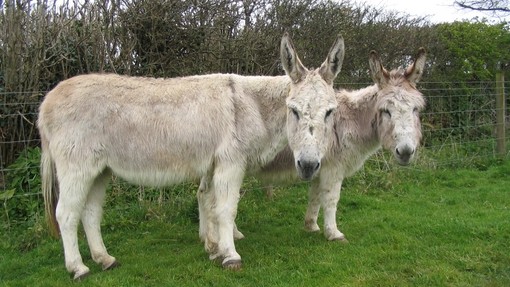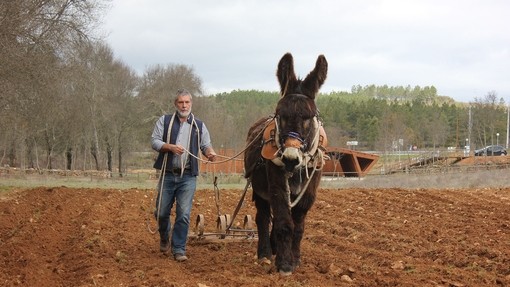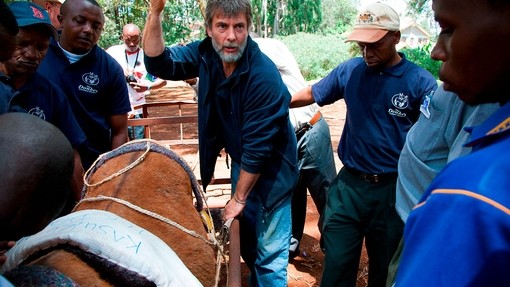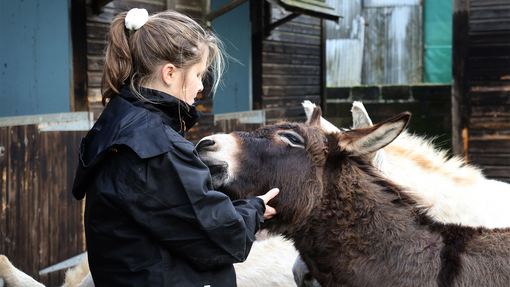General Information
In 2006 England and Wales introduced legislation to protect the welfare of animals (Animal Welfare Act 2006). Included was the requirement that a person responsible for an animal has a duty of care to provide for that animal’s needs.
This includes any person who may be in direct control of the animal as well as the owner. In some circumstances those commissioning the use of animals may share in this duty of care. It is therefore recommended that all parties are aware of the relevant information in the references that are provided at the end of these guidelines to ensure compliance with all legislation and that the welfare of any animals involved is assured.
Businesses that keep donkeys for the purposes of being let out on hire for riding are required to be licensed by their local authority. This includes beach donkeys or elsewhere and those used for donkey derbies.
Licences are issued or denied by the local authority only after inspection by a registered veterinary surgeon. The inspection covers an assessment of all of the animals, including their capability to undertake the work required of them, along with their overall care and management.
The inspection also assesses the premises, disease control precautions, stabling and grazing, saddles and tack, and the knowledge and qualifications of the licence holder. The licence places specific requirements on the operator relating to public liability insurance.
Licensed animals must be at least four years of age and the use of heavily pregnant mares (“jennies”) or those that have recently foaled is prohibited. It is the responsibility of the owner to maintain these standards following inspection visits.
The following guidelines are designed to assist those who wish to use donkeys for riding or other similar activities. If more information would be helpful or if you wish to discuss in more detail how to ensure the welfare of any donkeys being used for these purposes please contact The Donkey Sanctuary.
Training
Donkeys should willingly participate in the preparation for an event and the event itself. They must not be forced or coerced. This requires appropriate training and experience gained over time through the use of techniques based on positive reinforcement.
Aversive training techniques based on punishment or compulsion should not be used either before or during the event. Donkeys and mules are different in their natures to other equines with a much less easily engaged flight response.
The donkey’s natural response is often to ‘freeze’ and consider an issue carefully rather than fleeing. This can make training donkeys for riding and active pursuits more challenging, such natural behaviour should not be misinterpreted as ‘stubborn’.
Successful training will be considerate of this unique nature and should ensure that donkeys are not kicked, whipped or shouted at either by riders or followers.
Donkey suitability
Donkeys should be at least four years of age. The owner should be confident that they physically fit and able to undertake the planned activity without undue distress or suffering.
Donkeys should be carefully assessed to determine the maximum rider weight they can carry.
Historically 8 stone (50 kg) has been used as a maximum guideline for an average UK donkey used for entertainment or leisure activities. In reality this should be the maximum load for a fit, larger than average donkey and only when the rider is able to stay balanced and react to the movements of the donkey.
Riders should be experienced or well-informed of how to behave prior to mounting. Inexperienced riders must be closely supervised throughout the ride.
All tack used should be clean, well-maintained and appropriately fitted to the individual donkey. The donkey needs to be introduced and become accustomed to the tack during the training period.
Planning
The following are general recommendations. The list is not exhaustive:
- Priority should be given to the welfare of participating donkeys.
- Contact the operator before the event to discuss in detail how the welfare of donkeys will be ensured. Ask to visit the premises where they are kept and meet the donkeys.
- Confirm who is the licensing authority and the date of licensing. It is a good idea to contact the licensing authority if there are any questions or concerns.
- All donkeys should be appropriately trained and suitable for the event.
- A member of the planning team designated as responsible for donkey welfare should be known to all those attending and able to make changes to the event at any time if they identify that animal welfare might be compromised.
- An equine veterinary surgeon should be in attendance or on duty (with prior knowledge of the event).
- The attending public should be made aware of how they can assist in ensuring the donkeys are willing participants and are not caused any distress through appropriate public address and programme messages.
- Appropriate risk assessments and contingency planning should be in place to protect donkeys, staff and general public.
- Courses and event arenas should be designed to be safe and appropriate for the experience and fitness of the donkeys concerned.
- Appropriate rest periods need to be given. Tack should be removed with opportunity to drink and feed. For example, this maybe after each race, after 2 hours of walking, and include a day off each week for those giving rides on beaches or elsewhere on a regular basis.
Transportation
All donkeys attending an event need to be accustomed to loading confidently in a variety of situations and familiar with the type of vehicle being used.
It should be remembered that equine transport is tiring for the animals continually needing to keep their balance.
A number of hours’ rest with feed and water in a quiet environment should be given prior to any activity beyond a short walk.
All vehicles used should be checked to ensure that they are safe for donkeys. For example, semi solid horse partitions risk trapping donkeys that lie down and trailer breast bars can often be positioned too high.
Drivers should be experienced in transporting horses or donkeys and aware that donkeys may not be as accustomed to road journeys. Greater care around bends or on uneven surfaces is recommended.
Anyone transporting animals should be familiar with the requirements of the Welfare of Animals (Transport) Order 2006.
On-site donkey management
Donkeys that are remaining on site for any length of time will need safe holding accommodation. This accommodation should provide protection from the elements, fresh clean water ad lib, appropriate feed (generally good quality barley straw with limited hay) and a comfortable clean area in which to lie down.
At busy high-profile events this area should be away from the main activity yet supervised to avoid accidents, inappropriate feeding and to protect the donkeys from constant noise and stress.
Operator information
The names and contact details of the owner and people responsible for the donkeys should be clearly displayed to those attending the event or site where the donkeys are working.
What to do if you are concerned?
If you have concerns about any donkeys being used for rides or similar events these should be reported to the relevant licensing authority. The Donkey Sanctuary is not involved directly in the licensing process but we do provide these guidelines and any additional information requested that operators may choose to adopt. In addition it is useful for our welfare team to be aware of any concerns that arise.
Although we have no legal power to act if concerns prove to be well founded, we may be able to work with other organisations who do enforce legislation, and at times the operators themselves to improve matters.
References
- Riding Establishment Act 1964 Chapter 32
- Riding Establishment Act 1970 Chapter 70
- Animal Welfare Act (2006)
- Welfare of Animals (Transport) Order 2006
- Performing Animals (Regulation) Act 1925
- Horse Passport Regulations 2009
- Code of practice for the welfare of horses, ponies, donkeys and their hybrids (DEFRA) 2013 (updated 2018)
- Equine industry welfare guidelines compendium for horses, ponies and donkeys, 3rd Edition (National Equine Welfare Council) 2009
Please note that legislation, codes of practice and guidelines vary between countries and it is recommended that the country specific reference is consulted.




